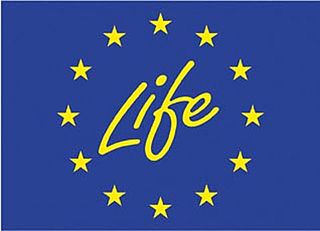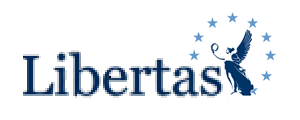
Comitology in the European Union refers to a process by which EU law is implemented or adjusted by the European Commission working in conjunction with committees of national representatives from the EU member states, colloquially called "comitology committees". These are chaired by the European Commission. The official term for the process is committee procedure. Comitology committees are part of the EU's broader system of committees that assist in the making, adoption, and implementation of EU laws.

A European political party, known formally as a political party at European level and informally as a Europarty, is a type of political party organisation operating transnationally in Europe and within the institutions of the European Union (EU). They are regulated and funded by EU Regulation No. 1141/2014 on European Political Parties and European Political Foundations and their operations are supervised by the EU Authority for European Political Parties and European Political Foundations. European political parties – usually consisting of national parties, not individuals – have the exclusive right to campaign during the European elections and express themselves within the European Parliament by their affiliated political groups and their MEPs. Europarties influence the decision-making process of the European Council through coordination meetings with their affiliated heads of state and government. They also work closely and co-ordinate with their affiliated members of the European Commission.
A novel food is a type of food that does not have a significant history of consumption or is produced by a method that has not previously been used for food.
The European Institute of Innovation and Technology (EIT) is an independent body of the European Union with juridical personality, established in 2008 intended to strengthen Europe's ability to innovate. The EIT’s three “core pillars” of activities are: entrepreneurial education programmes and courses across Europe that transform students into entrepreneurs; business creation and acceleration services that scale ideas and budding businesses; and innovation-driven research projects that turn ideas into products by connecting partners, investors, and expertise.

The Roaming Regulation 2022 bans roaming charges (Eurotariff) within the European Economic Area (EEA), which consists of the member states of the European Union, Iceland, Liechtenstein and Norway. This regulates both the charges mobile network operator can impose on its subscribers for using telephone and data services outside of the network's member state, and the wholesale rates networks can charge each other to allow their subscribers access to each other's networks. The 2012 Regulation was recast in 2022.

The Internal Audit Service or IAS is a Directorate-General (DG) of the European Commission that was established in 2001 to provide an increased accountability of the Commission.
The Instrument for Pre-Accession Assistance, or simply IPA, is a funding mechanism of the European Union. As of 2007, it replaced previous programmes such as the PHARE, ISPA, SAPARD and CARDS. Unlike the previous assistance programs, IPA offers funds to both EU candidate countries and potential candidates.
Libertas was a pan-European political party founded by Declan Ganley that took part in the 2009 European Parliament election in several member states of the European Union. It won one seat in France.
Libertas France is the name given to the activities of Declan Ganley's Libertas Party in France. Unlike Libertas in other countries, Libertas France was not a political party in its own right. Instead, candidates from Mouvement pour la France (MPF) and Chasse, Pêche, Nature et Traditions (CPNT) contended the 2009 European Parliament elections in France under common lists branded with the Libertas identity. The candidates retained their membership of their national parties and the national parties retained their legal identity.

The LIFE programme is the European Union's funding instrument for the environment and climate action. The general objective of LIFE is to contribute to the implementation, updating and development of EU environmental and climate policy and legislation by co-financing projects with European added value. LIFE began in 1992 and to date there have been five phases of the programme. During this period, LIFE has co-financed some 4600 projects across the EU, with a total contribution of approximately 6.5 billion Euros to the protection of the environment and of climate. For the next phase of the programme (2021–2027) the European Commission proposed to raise the budget to 5.45 billion Euro.

Turkish Cypriots and the European Union have somewhat strained relations because the European Union (EU) does not recognise the self-declared Turkish Republic of Northern Cyprus.

The area of freedom, security and justice (AFSJ) of the European Union (EU) is a policy domain concerning home affairs and migration, justice as well as fundamental rights, developed to address the challenges posed to internal security by collateral effects of the free movement of people and goods in the absence of border controls or customs inspection throughout the Schengen Area, as well as to safeguard adherence to the common European values through ensuring that the fundamental rights of people are respected across the EU.
The European Union's Third Energy Package is a legislative package for an internal gas and electricity market in the European Union. Its purpose is to further open up the gas and electricity markets in the European Union. The package was proposed by the European Commission in September 2007, and adopted by the European Parliament and the Council of the European Union in July 2009. It entered into force on 3 September 2009.

The European Commission's Asylum, Migration and Integration Fund is a funding programme managed by the Directorate-General for Migration and Home Affairs which promotes the efficient management of migration flows and the implementation, strengthening and development of a common approach to asylum and immigration in the European Union. All EU Member States except Denmark participate in the implementation of this Fund. Most of the funds are provided to the EU Member States for activities addressing previously agreed upon themes. A part of the funding is reserved for emergency assistance. A final part is reserved for Union Actions, which are European Commission managed projects that are developed as either calls for proposals, direct awards, procurements, or delegation agreements.
The European Research Executive Agency is a funding body mandated by the European Commission to support the EU Research and Innovation policy. It has been established by the European Commission, based on Council Regulation (EC) No 58/2003.

The Directorate-General for Defence Industry and Space is a department of the European Commission.

The Libertas Institute is a lobby group that along with others successfully campaigned for a "no" vote in the 2008 referendum in Ireland on the Treaty of Lisbon.







